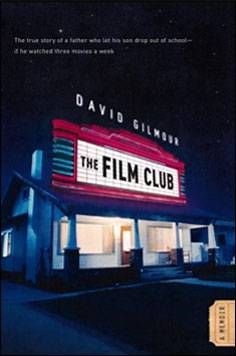
David Gilmour: Shallow. Misguided. And Wrong.
Oh, David Gilmour. Just. Stop. Talking.

It is important to me that you know that this is a marvelous book written by a complete bag of dicks.
Bookish internet was abuzz yesterday with David Gilmour’s assertion that he is “not interested in teaching books by women.” That’s only really the tip of the iceberg. He also, in spite of being a winner of one of Canada’s highest honours for literature (the Governor General’s Award) and a nominee for another (the Giller), can’t seem to bring himself to acknowledge that any Canadian writers are good enough to teach. And don’t get him started on the Chinese, for some reason.
No, David Gilmour only teaches “guys. Serious heterosexual guys. F. Scott Fitzgerald, Chekhov, Tolstoy. Real guy-guys. Henry Miller. Philip Roth.”
I think in a previous Book Riot post I coined a term that may be appropriate: penis-waving literature. Gilmour teaches penis-waving literature, to the exclusion of all other literature. And only, for some reason, white penises. No other penises need apply.
I’m interested in lots of things about this story that haven’t been discussed. Especially: How flipping clever is Random House Canada to run this story now, as David Gilmour (not in the RH stable of writers, but instead with a HarperCollins imprint) is up against a number of RH writers for the Giller Prize, whose shortlist is a scant two weeks away from unveiling?
But mostly, honestly, I’m just sad. Sad as a reader, and more acutely, sad as a teacher.
I was more than a little heartbroken when I read this ridiculous diatribe. Unlike most people responding to Gilmour’s comments, I have read most of his oeuvre and have even loved some of it. The Film Club is, quite frankly, an exquisite book. In fact, as I write this I am staring at my prized copy of this book and feeling let down and disappointed by a man I thought much more capable of empathy and depth of thought.
For the record, I reject the premise of the “well I never read him anyway” critique, especially from American book bloggers — of course you haven’t. He writes Canadian LitFic. After Margaret Atwood and Alice Munro, how many Canadian LitFic writers do you know intimately well? This tweet summed it up for me:
The fact is that this critique is silly and easy and misses the point. This isn’t about Gilmour’s life as a writer. This is far more importantly about Gilmour’s life as a teacher. And that’s the part of it I am responding to. That’s the part that filled me with disappointment and anger. Because we owe our students better than this.
I am a college teacher. I teach mostly first and second year, with a very occasional third year seminar to keep me on my toes. I primarily teach Canadian literature, children’s literature, and 21st century literature. As a well-rounded Generalist, sometimes I teach other stuff too. I love my job and I love my students. I see the role of a post-secondary instructor as one of opening doors to new ideas, not crafting new mini-mes. If I only taught what I love, I would teach four sections a semester of Douglas Coupland Through The Decades, and I would churn out students poised to do little more than recreate my own research. This is a service to no one (not even me).
Gilmour sees his role in the classroom very differently. He tells us:
I’m a natural teacher, I was trained in television for many years. I know how to talk to a camera, therefore I know how to talk to a room of students. It’s the same thing.
Respectfully, David Gilmour, no. No it is not. A television audience, a camera, cannot respond to you. It cannot ask questions. It cannot argue. It cannot disagree. It can only sit passively. If your students — University of Toronto students ostensibly being some of the best and brightest in Canada — are sitting passively in your class, you are failing them. You are failing to engage them and you are failing to train them as scholars.
I cannot tell you how many times I say the exact opposite thing to my students: “Ladies and Gentlemen, this is not a TV show. I am in the room. With you. And we are discussing this text. So let’s discuss.” If my students are unable to engage with the material, that is my failing.
Gilmour tells us that he cannot teach texts he does not love:
But I can only teach stuff I love. I can’t teach stuff that I don’t, and I haven’t encountered any Canadian writers yet that I love enough to teach.
On Thursday afternoon, I will be in a classroom in a Vancouver suburb teaching Keats. I don’t adore Keats. To tell you the truth, I find Keats kind of whiny. Luckily, in the same class, I will get to teach Wordsworth, whom I do adore. I suspect my students won’t be able to tell which poet I find whiny and which poet I adore, because that’s not my job. My job is to introduce my students to the range and excitement of the British literary canon, and I am not so obtuse that I am incapable of recognizing greatness even when that greatness is not my pleasure.
To teach only that which we enjoy means that we foreground not the students’ learning but our own pleasure. Teaching isn’t supposed to be a masturbatory act, David Gilmour. Teaching is about interaction and exchange. Teaching is a sacred trust, not an opportunity to mansplain the greatness of your Desert Island Discs. You are not Rob Fleming. The world is not your Championship Vinyl. University of Toronto is not a chapter of High Fidelity.
Helpfully, Gilmour spent yesterday issuing non-pologies for his nonsense.
I’m the only guy in North America who teaches Truman Capote.
Nope. Not true. Not even a little true. Do you ask students to cite their sources?
And this is a young woman who kind of wanted to make a little name for herself, or something.
Oh, now I definitely don’t think you’re sexist. Well defended! Emily M. Keeler is not even a reviewer for a national daily or anything. Silly her with her dreams of having a “little name.” Do you approach female students with this level of disdain?
Quite frankly, I was speaking to a Frenchman, so I was more concerned with my French than I was with what I was saying to this young woman.
Do you ever deride your students for being distracted in class? For not focusing on the task at hand?
What I am is I’m a middle-aged writer and I’m very interested in the middle-aged writers experience.
And yet your students, decidedly not middle-aged writers, are able to connect to this experience wildly outside of their own. You feel no need to offer them the same all-encompassing “relatability” that you so prize.
I have taught Romeo and Juliet with empathy, though I think it quite silly and ill-constructed. I have taught The Crucible though I am not, nor have I ever been, tried for witchcraft. I am currently teaching A Heartbreaking Work of Staggering Geniuss, though I am not a 21-year-old orphan raising a child. Though these books are all written by dudes, and I am but a lowly woman, I find some way to teach them. I teach these books because I believe my students have something to gain from them regardless of whether or not it speaks to my experience.
Next semester, how about I teach a first-year seminar called Thirty-Year-Old Women and the Cats Who Love Them. A big draw, I’m certain.
I don’t want people not buying my book because they think that’s the position I hold in the world.
“I’m not so much apologizing as begging you to not not buy my book.”
I’ve just written a book in which the principal narrator is a woman.
Wait, but, what? You can’t relate to women enough to teach their stories, but you can relate enough to appropriate their voices? One of these things is not like the other.
Here’s the thing: David Gilmour has unsavory, but not uncommon, views about literature. I know lots of people who would never voice these opinions but whose bookshelves tell a similar story. The point is that as educators we are supposed to be breaking down these outmoded opinions, not reifying them. I hope U of T is looking unfavourably on the behaviour of this instructor — certainly hard to imagine a non-famous sessional in this academic climate surviving such an outburst — and reviewing the extent to which this viewpoint meshes with Victoria College’s commitment to diversity.
More importantly, though, I hope David Gilmour is hearing the reasoned, thoughtful critique through the din. I hope he is able to reconsider his views. I hope his is able to rediscover the empathy I thought him capable of when I first read The Film Club. I hope he can come to a point where he acknowledges not that he might have hurt people, not that people misinterpreted him, but that he is wrong: simply wrong. Shallow. Misguided. And wrong.
____________________________
Sign up for our newsletter to have the best of Book Riot delivered straight to your inbox every week. No spam. We promise.
To keep up with Book Riot on a daily basis, follow us on Twitter, like us on Facebook, , and subscribe to the Book Riot podcast in iTunes or via RSS. So much bookish goodness–all day, every day.












